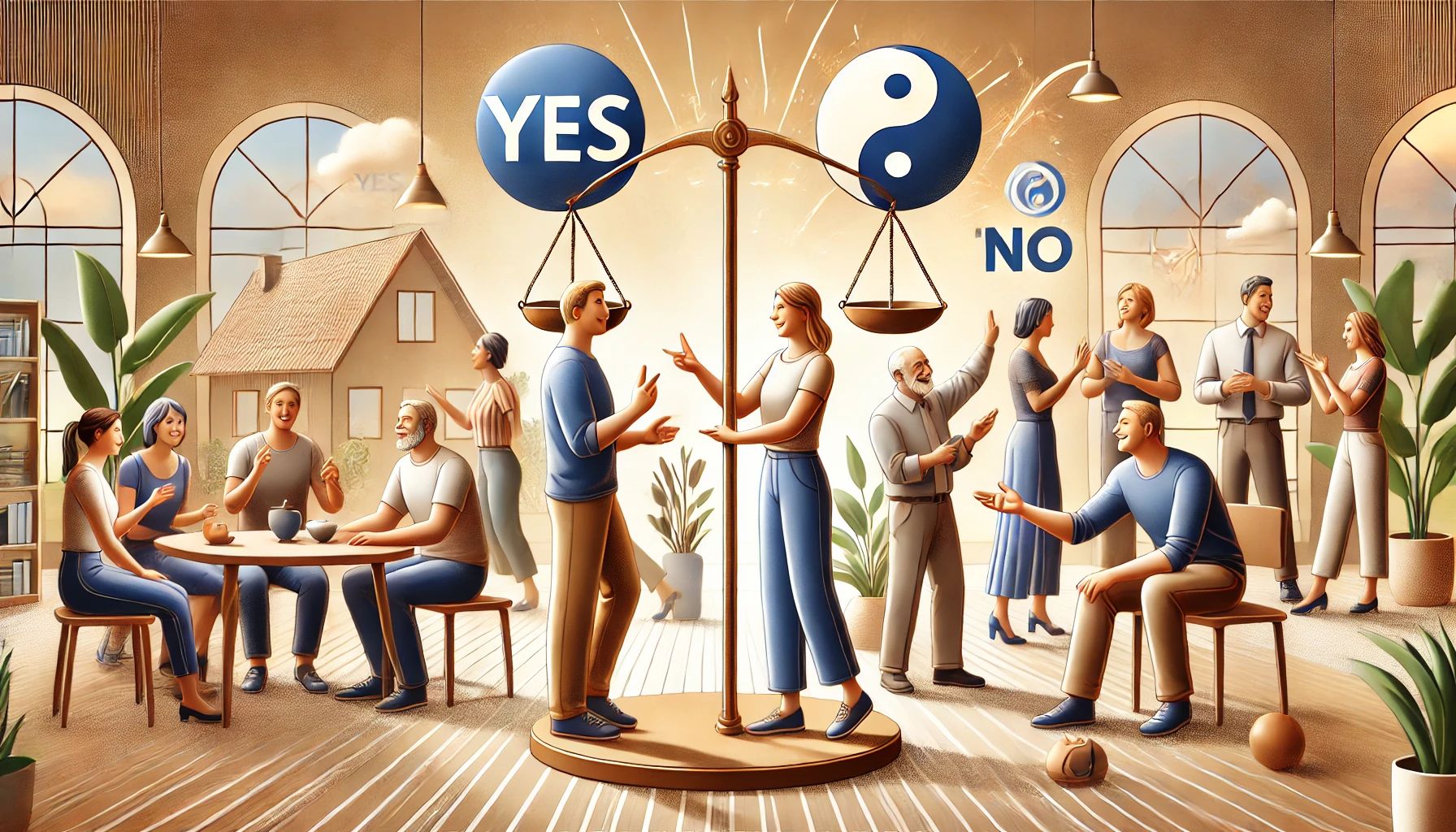
Have you ever stopped to think about how often the words "yes" and "no" shape your daily interactions? Which word resonates more frequently in your life—are you a "yes" person or a "no" person?
In society, there exist three distinct categories of individuals when it comes to responding to requests: those who rarely decline and consistently say "yes," those who predominantly refuse and seldom utter "yes," and those who adeptly balance between both responses. The last group exemplifies individuals with strong personal boundaries—able to decline proposals that don't align with their needs while considering the needs of others. This equilibrium of "yes" and "no" reflects maturity, inner integrity, and balance, crucial for navigating social interactions successfully.
However, individuals who excessively say "yes" often find themselves in caretaker roles, prioritizing others' needs over their own. These compassionate souls, while empathetic and patient, may neglect their own well-being, becoming resentful of their perceived role as perpetual helpers. They fear rejection and confrontation, unable to assert their own desires for fear of disrupting relationships.
Conversely, those who habitually say "no" erect emotional barriers, shielding themselves from potential emotional harm. They may have experienced past disappointments or even trauma, leading them to be cautious and protective of their personal space and emotions. Their reticence towards intimacy and emotional investment often stems from a deep-seated fear of vulnerability and dependency.
The foundation of these behavioral tendencies can often be traced back to childhood dynamics, where parental influence played a pivotal role. Children raised in environments where their boundaries were not respected or where their decisions were overridden may grow up either excessively accommodating or defensively resistant.
For these individuals, embracing a healthy balance of "yes" and "no" involves reclaiming their autonomy without compromising their relationships. It requires learning to say "no" without guilt and saying "yes" without losing oneself in the process. Relationships, in essence, thrive on this dynamic exchange—balancing individual needs with mutual respect and understanding.
Ultimately, achieving a harmonious balance of "yes" and "no" in relationships is akin to mastering the art of breathing—a constant rhythm of self-affirmation and mutual accommodation. Couples who navigate this journey together, confronting their fears and insecurities, stand to cultivate a mature and enduring love—a union where acceptance and growth replace unrealistic expectations and futile attempts to change one another.


